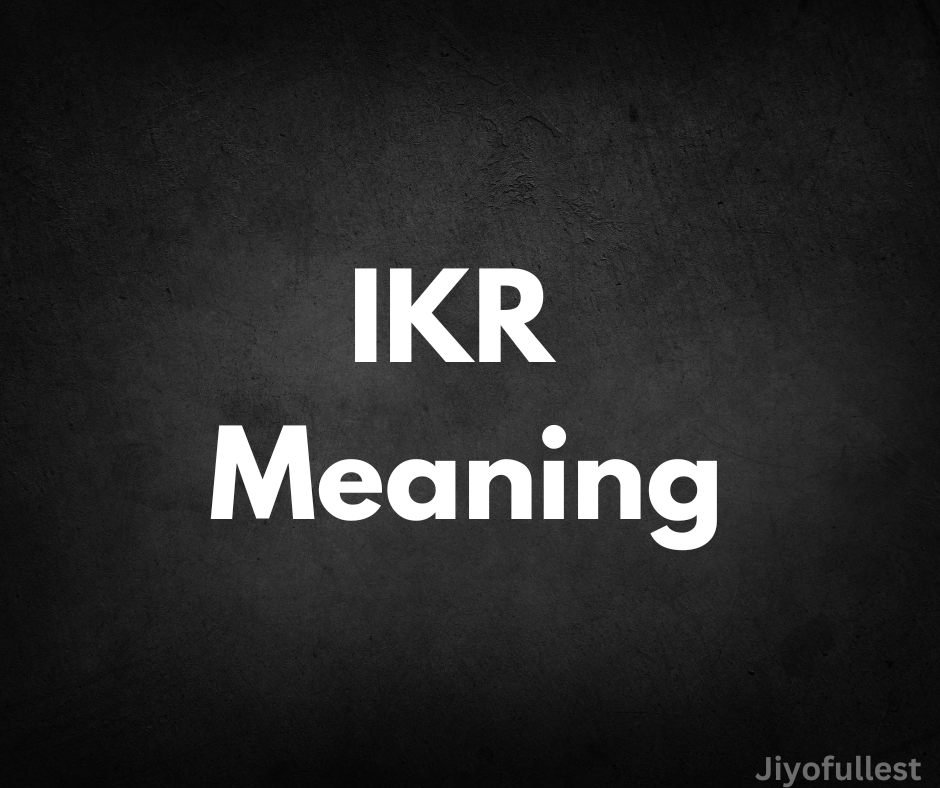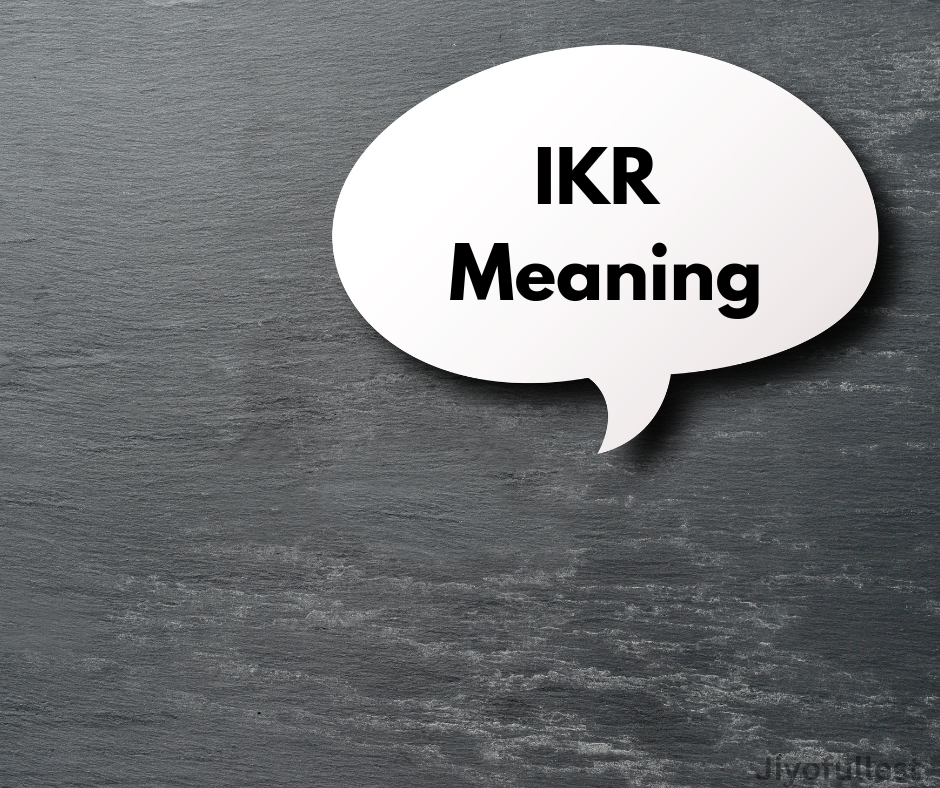In our digital age, acronyms and abbreviations are an integral part of online communication. One such commonly used acronym is “IKR.” Familiarity with these terms not only enhances your communication skills but also helps you stay current with evolving digital language trends.
Table of Contents
ToggleMeaning of IKR
IKR stands for “I Know, Right?” It’s used to express agreement or validation of something that someone else has said, often emphasizing that you feel the same way.
History and Origin
IKR originated in internet chat rooms and early instant messaging platforms. As digital communication expanded, so did the use of shorthand expressions. Over time, IKR became a popular way to quickly convey agreement and empathy.
How to Use IKR
IKR is typically used to respond to statements where you strongly agree or feel the same way. It’s a quick and informal way to validate someone’s feelings or observations.
Examples of Using IKR Effectively
In Casual Texts
- Friend: “This weather is so unpredictable!”
- You: “IKR? It was sunny just an hour ago!”
In Professional Emails
- Colleague: “The new project guidelines are confusing.”
- You: “IKR? I’ve had to reread them multiple times.”
On Social Media
- “Just finished watching that series. So many twists!”
- You: “IKR? It kept me on the edge of my seat!”
In Work-related Messages
- Team Member: “These back-to-back meetings are exhausting.”
- You: “IKR? We need a break!”
In Personal Invitations
- Invitation: “We always have so much fun at our gatherings.”
- You: “IKR? Can’t wait for the next one!”
Formal vs. Informal Usage
Informal Communication
IKR is best suited for informal conversations with friends, family, or colleagues you are close with. It adds a personal touch to the interaction.
Formal Communication
In formal settings, it’s better to use complete sentences to express agreement. Instead of “IKR,” you could say, “I completely agree” or “I feel the same way.”
What Can You Say Instead of IKR?
- I agree
- Absolutely
- Exactly
- You’re right
- So true
- Totally
- I feel the same way
- Couldn’t agree more
- That’s right
- Precisely

Common Mistakes
Misinterpretations and Incorrect Usage
A common mistake is using IKR in contexts where the other person might not understand it or where it’s inappropriate, such as formal communication.
Tips for Avoiding Mistakes
- Use IKR only in informal settings.
- Ensure the recipient is familiar with internet slang.
- When in doubt, spell out your agreement.
Related Acronyms
Other Similar Internet Slang
- OMG: “Oh My God”
- LOL: “Laugh Out Loud”
- TBH: “To Be Honest”
Brief Explanations
- OMG: Used to express surprise or excitement.
- LOL: Used to indicate something is funny.
- TBH: Used to introduce a frank or honest statement.
Impact on Modern Communication
Changing the Way We Communicate
Acronyms like IKR make communication quicker and more efficient, allowing people to convey emotions and reactions in a few characters.
Shaping Language Trends
Internet slang continues to shape language trends, creating a more dynamic and evolving form of communication that reflects the fast-paced nature of digital interactions.
Conclusion
Understanding and using acronyms like IKR can enhance your digital communication skills. Whether you’re texting a friend or interacting on social media, knowing how to use IKR effectively can help you convey agreement and empathy succinctly.
FAQs
1. What does IKR stand for?
IKR stands for “I Know, Right?”
2. When should I use IKR?
Use IKR in informal settings to express strong agreement with someone’s statement.
3. Can I use IKR in professional emails?
It’s best to avoid using IKR in professional emails and opt for a more formal expression of agreement.
4. What are some similar acronyms to IKR?
Similar acronyms include OMG (Oh My God), LOL (Laugh Out Loud), and TBH (To Be Honest).
5. How has IKR impacted modern communication?
IKR and similar acronyms have made communication faster and more efficient, reflecting the need for brevity in the digital age.

